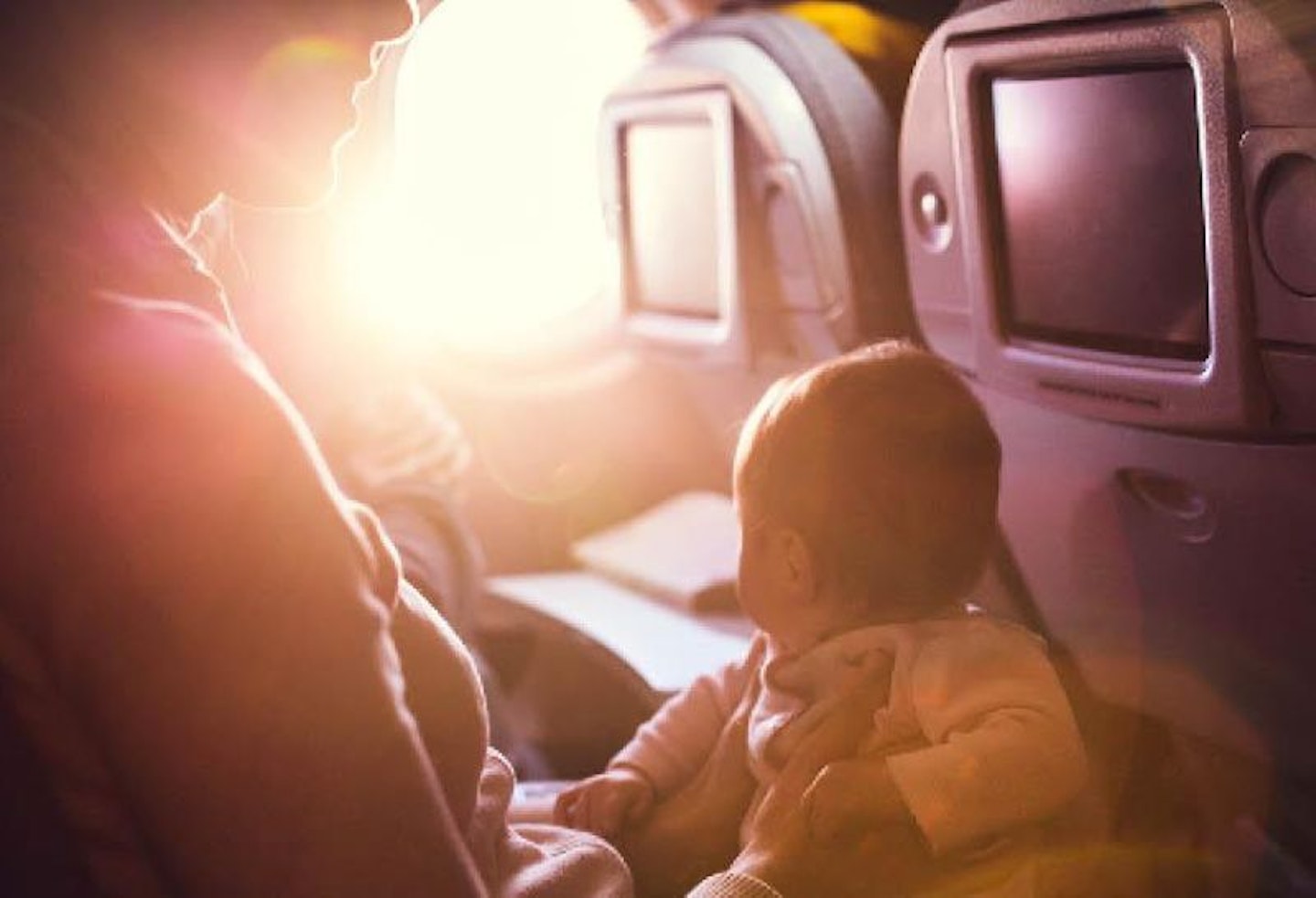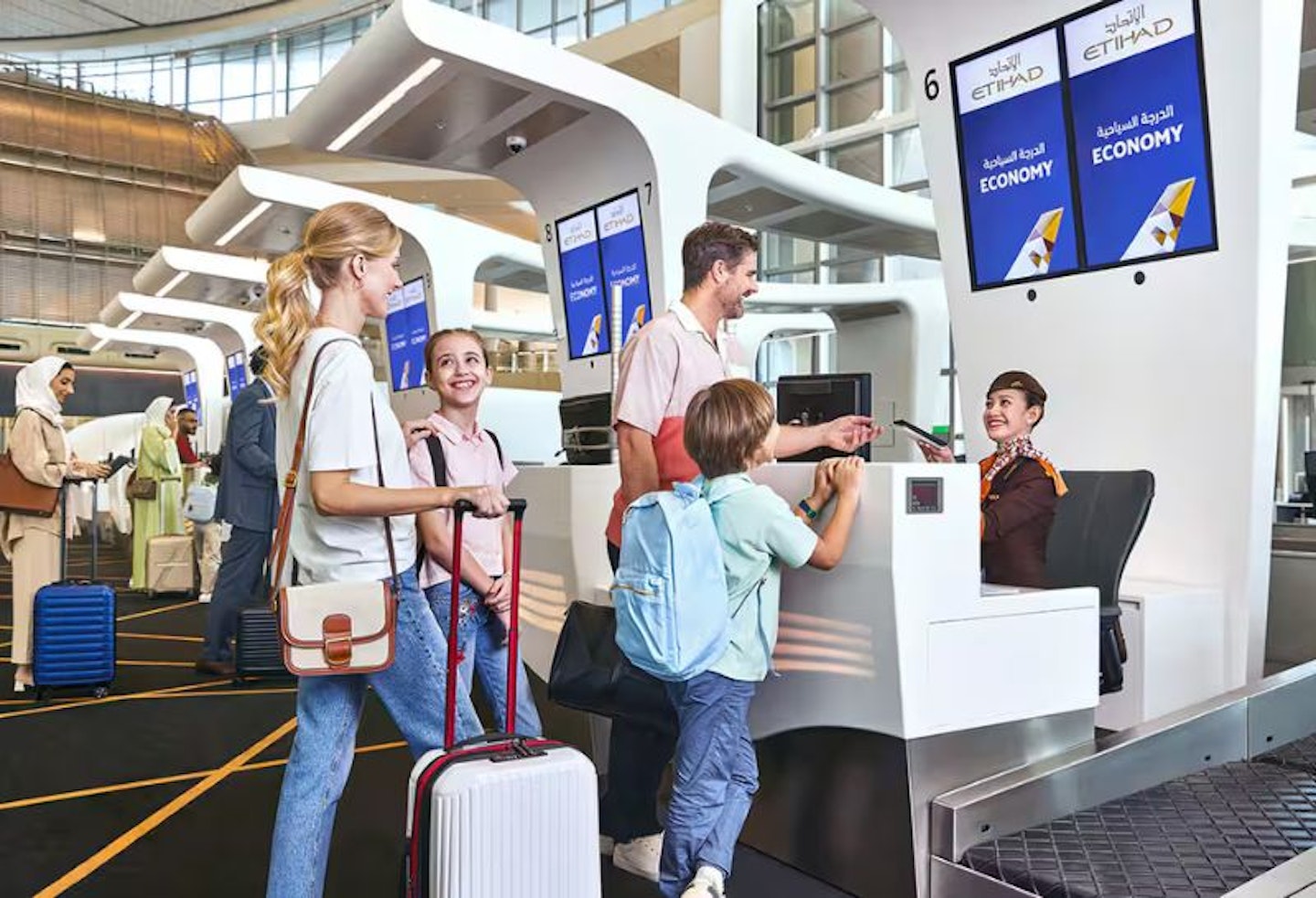If you're expecting a baby, or trying for a baby and also planning a holiday, you might be wondering which airlines are best to fly with when pregnant. While the decision of which airline to use is often dictated by where you're flying to, there are some things to consider when booking, and some handy tips to know before you fly which could make your journey a lot easier.
As a mum of two who's flown multiple times, both pregnant and with children, I've learnt what to look out for and how to make that journey a lot more comfortable. So read on to find out which airlines are best to fly with when pregnant and what you need to consider before you book that, probably much-needed, holiday.
Best airlines to fly with when pregnant
Singapore Airlines

Singapore Airlines is renowned for its outstanding cabin service, and the comfort of its seats in both Economy and Business classes, and is often found in the 'best airline' lists. The seat pitch of 32-34" is one of the most generous of all airlines.
The airline also offers bassinets, child meal options, activities packs, changing tables, and assistance with carrying luggage for passengers traveling with small children so it's a good one to consider if you're flying with children.
Singapore Airlines allows pregnant women to fly without a medical certificate until the 28th week. Between 29 and 36 weeks, a medical certificate is required, and travel beyond 36 weeks is not allowed (beyond 32 weeks for a multiple pregnancy).
Qatar Airways

Recently voted Airline of the Year 2024, Qatar Airways is highly rated for its luxury services, comfortable seating options, and spacious legroom so these are amongst the best airline seats for pregnant women. Additionally, the airline offers special assistance for families travelling with young children, including baby bassinets, priority boarding and a young traveller pack filled with board games, puzzles, and other interactive items.
Qatar Airways has a policy that permits pregnant women to fly without a doctor’s note until the 28th week of pregnancy. After the 28th week, a medical certificate is required, and the airline restricts travel beyond 36 weeks. If you're pregnant with twins (or more) this is up to 32 weeks.
Virgin Atlantic

Virgin Airways are a fun option for flying when pregnant. The crew are generally friendly and happy to help with requests, especially if you're flying with infants when they provide special services like in-flight bassinets, and can assist with warming milk or providing extra comfort for young children. The seat pitch is 30-31" so on the smaller size but at 17.5" the seat width is slightly wider than other airlines.
Virgin Atlantic allows pregnant women to fly without a doctor’s note up until the 28th week of pregnancy, assuming no complications have arisen. From 28 to 36 weeks, you can fly as long as you provide a medical certificate confirming your fitness to travel. After 36 weeks, flying is not permitted.
Emirates

Emirates is known for its high level of service and comfort, and offers significant legroom at 32-34" and excellent in-flight amenities. If you're travelling with babies or children, they also provide complimentary baby strollers at Dubai International Airport and there are separate check‑in desks for families. On board you can order a baby bassinet and there are infant kits with essentials like nappies, bibs and wipes, as well as baby changing tables in the washrooms on board.
Emirates has a policy that allows women to travel without a medical certificate until the 29th week of pregnancy. After the 29th week, a certificate from your doctor is required, and after 36 weeks, travel is prohibited.
Etihad Airways

Etihad's Economy seat pitch is amongst the more generous, at 31-33" with a 17.5 seat width. The airline also provides airport lounges (bookable for a fee when travelling in Economy) with relaxation areas that pregnant women may appreciate during layovers. If you're traveling with small children, the service is particularly family-friendly, with priority check-in, preferential boarding, child meal options, bassinets, and activities packs.
Etihad allows travel until 28 weeks without a medical certificate and between 29 and 36 weeks with a certificate. After 36 weeks, flying is not allowed.
How many weeks pregnant can you fly internationally?
When choosing the best airline to fly with when pregnant, it's also worth looking at your dates. Airline policies for pregnant travellers vary regarding when you can fly without a doctor's note, as you'll have noticed in our round up above. So before you book a flight, take a look at your due date and do the maths to figure out what week of your pregnancy you'll be in when you fly - and remember that this needs to factor in the week you fly home!
Other things to consider when flying pregnant
Timing
While every woman's pregnancy is different, it's likely that travelling in your second trimester is going to be most enjoyable. You'll (hopefully) be over the morning sickness and tiredness of the first trimester but shouldn't need to provide a doctor's letter which you would in the third trimester.
Insurance
Hopefully you wouldn't travel without insurance anyway, but it's even more important when you're pregnant. Double check that your insurance covers you when pregnant and jot down important phone numbers.
Talk to your doctor
It's important to speak with your doctor before booking a flight to get their sign off on any trips, particularly later in your pregnancy. You'll also want to check that you won't miss any important scans or check ups, or at least let them know that you'll be away so will need to reschedule.
Plan ahead
Hopefully you won't need medical care while you're on holiday but it's a good idea to take copies of any medical information and check out the local healthcare facilities so you know where to go if needed.
If possible, it's helpful to book an aisle seat so you can get up and move around the cabin regularly to help with blood flow (and those more frequent toilet trips!)
Pack and dress wisely
Depending how far along you are in your pregnancy, you might want to pack or wear compression stockings for the flight to help reduce swelling and improve blood circulation. Loose clothing will make you more comfortable on the flight. If you're travelling with children, a lightweight cabin-approved stroller will make your life a lot easier. Also make sure you have enough water with you to stay hydrated.
Choose your destination carefully
It's advised that pregnant women don't travel to countries where the Zika virus is present as this can pose more of a risk in pregnancy. You should also check what vaccinations are required and if malaria is a risk as some vaccinations and anti-malaria tablets aren't suitable for pregnancy. You can check the country specific information, including vaccinations and outbreaks at Travel Health Pro.
It's always a good idea, whether you're pregnant or not, to check the Foreign Office Travel Advice for the country you're travelling to.
Rebecca Lancaster is a Digital Writer for Mother&Baby, drawing on ten years of parenting her two children to help others navigating their own parenting journey. As a freelance writer, she spent ten years working with leading lifestyle brands, from travel companies to food and drink start-ups, and writing everything from hotel reviews to guides to the best British cheeses. She’s particularly interested in travel and introducing her children to the excitement of visiting new places, trying different foods (less successfully) and experiencing different cultures.
